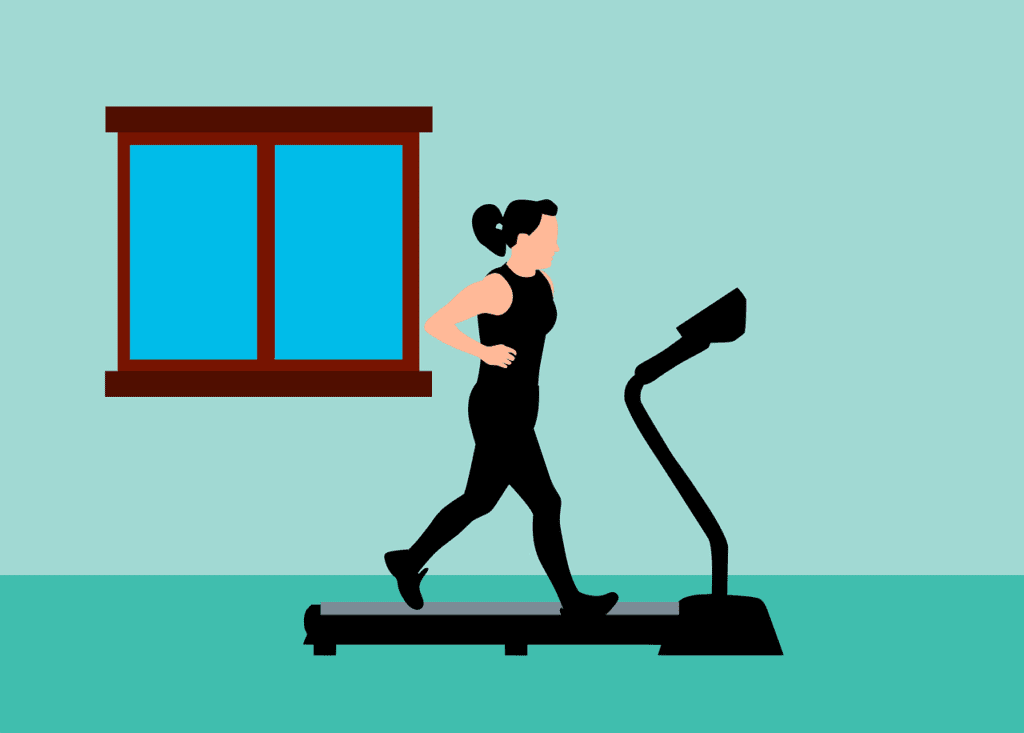
Intro
Are you struggling to prioritize your health in the midst of a busy schedule? It’s easy to get caught up in work, social obligations, and other responsibilities, often neglecting one of the most essential components of our well-being: a good night’s sleep. While it may seem like a luxury or an afterthought, the truth is that a good night’s sleep should be at the top of your list when it comes to taking care of yourself. In fact, it is the lowest cost and single most important thing you can do for your health. Let’s explore why prioritizing a good night’s sleep is crucial for overall wellness.

Unpacking the Power of Sleep
We all know that a good night’s sleep is important, but do we truly understand the power that sleep holds? It’s more than just a chance to rest and recharge; it’s a critical component of our overall health and well-being.
First and foremost, sleep is incredibly refreshing. We’ve all experienced the rejuvenating feeling that comes after a solid night of sleep. It’s like hitting the reset button on our bodies and minds. But what exactly happens during sleep that makes it so revitalizing?
One key player in the sleep game is melatonin, a hormone that regulates our sleep-wake cycle. When it gets dark outside, our bodies release melatonin, signaling to us that it’s time to wind down and get some rest. This hormone helps us fall asleep faster and stay asleep throughout the night, ensuring that we get the full benefits of a good night’s sleep.
And the benefits are plentiful. Not only does a good night’s sleep improve our mood and cognitive function, but it also enhances our creativity and maximizes athletic performance. It’s like giving our brain and body a much-needed tune-up.
But the benefits don’t stop there. Sleep also has a profound impact on our physical health. Adequate sleep strengthens our heart and lowers our risk of cardiovascular diseases. On the flip side, a lack of sleep is linked to an increased risk of heart disease, high blood pressure, and stroke.
Furthermore, poor sleep is also associated with mental health issues such as depression and anxiety. It’s a vicious cycle – lack of sleep can contribute to these conditions, and in turn, these conditions can disrupt our sleep. Taking care of our sleep hygiene is essential for maintaining good mental health.
Last but certainly not least, sleep supports a healthy immune system. During sleep, our bodies produce and release proteins called cytokines, which help fight off infection and inflammation. A lack of sleep can impair our immune system, making us more susceptible to illness.

Sleep, the Ultimate Stress Buster
In the hustle and bustle of our modern lives, stress seems to be an ever-present companion. From deadlines at work to family obligations, it can feel like we’re constantly being pulled in a million different directions. But what if I told you that there’s a simple and effective way to combat stress? It’s something that we all have access to, and it doesn’t cost a dime. I’m talking about sleep – the ultimate stress buster.
A good night’s sleep has the power to transform our state of mind and help us navigate the challenges of everyday life with ease. When we’re well-rested, we’re better equipped to handle stressors and make rational decisions. On the other hand, when we’re sleep-deprived, even the smallest inconveniences can feel overwhelming.
But why does sleep have such a profound impact on our stress levels? One reason is that sleep helps regulate our emotions. When we’re sleep-deprived, the emotional centers of our brain become hyperactive, leading to heightened stress and anxiety. On the contrary, when we get enough rest, our brain is better equipped to regulate emotions and keep stress at bay.
Additionally, sleep plays a crucial role in restoring our body’s natural balance. It helps reduce the production of stress hormones like cortisol, while increasing the release of mood-enhancing neurotransmitters like serotonin. This hormonal balance is vital for keeping stress levels in check and promoting overall well-being.
Moreover, sleep improves our ability to handle challenging situations. When we’re well-rested, we have enhanced cognitive function and better problem-solving skills. This allows us to approach stressful situations with clarity and find effective solutions.
In today’s fast-paced world, taking the time to prioritize a good night’s sleep may seem like a luxury. But the truth is, it’s an essential component of maintaining a healthy and balanced life. By ensuring we get enough rest, we’re equipping ourselves with the tools to navigate stress with ease and lead happier, more fulfilled lives.
So, next time you find yourself overwhelmed by stress, remember the power of a good night’s sleep. It’s not just a chance to recharge – it’s a potent stress buster that can help you take on whatever life throws your way. So, turn off the screens, create a calming sleep environment, and make sleep a priority. Your body and mind will thank you.

Good Sleep Equals Good Mood
A good night’s sleep is more than just a chance to rest and recharge – it’s a powerful mood booster that can transform your overall well-being. We’ve all experienced the refreshing feeling that comes after a solid night of sleep, and that’s because sleep has a direct impact on our mood.
When we get a good night’s sleep, we wake up feeling refreshed and ready to tackle the day ahead. Our mood is lifted, and we approach situations with a positive mindset. On the other hand, when we don’t get enough sleep, we’re more likely to wake up feeling groggy, irritable, and prone to mood swings.
But what exactly happens during sleep that improves our mood? One reason is that sleep improves our creativity. When we’re well-rested, our brains have the capacity to think more creatively and come up with innovative solutions to problems. This allows us to approach challenges with a positive and optimistic mindset, leading to a better overall mood.
Additionally, poor sleep has been linked to mental health issues such as depression and anxiety. Lack of sleep can exacerbate these conditions and make them more difficult to manage. Taking care of our sleep hygiene and prioritizing a good night’s sleep can have a profound impact on our mental well-being.
Sleep also reduces inflammation in our bodies, which has been linked to improved mood. Inflammation is a natural response to stress and can lead to increased feelings of irritability and mood swings. By getting enough sleep, we can reduce inflammation and maintain a more balanced mood throughout the day.

Sleep and Your Immune System: An Unbeatable Duo
When it comes to staying healthy, there’s one duo that simply can’t be beaten – sleep and your immune system. A good night’s sleep has the power to strengthen your body’s defenses and keep you protected from illness. It’s like a dynamic duo working together to ensure your overall well-being.
During sleep, your body produces and releases proteins called cytokines. These cytokines play a crucial role in fighting off infection and inflammation, two key factors that can compromise your immune system. So, when you prioritize a good night’s sleep, you’re essentially giving your immune system the boost it needs to keep you healthy.
On the flip side, a lack of sleep can have dangerous consequences for your immune system. When you don’t get enough rest, your body produces fewer cytokines, leaving you more vulnerable to illness. In fact, studies have shown that people who don’t get enough sleep are more likely to catch the common cold or flu.
Not only does sleep strengthen your immune system, but it also reduces inflammation in your body. Inflammation is a natural response to stress and can have a negative impact on your overall health. By getting enough sleep, you’re reducing inflammation and giving your body a chance to heal and recover.
But it doesn’t stop there. Poor sleep has been linked to an increased risk of chronic conditions such as heart disease, diabetes, and obesity – all of which can weaken your immune system. By prioritizing a good night’s sleep, you’re taking a proactive step towards maintaining a healthy immune system and reducing your risk of these conditions.
So, how can you ensure you’re getting the sleep you need to support your immune system? Start by establishing a consistent sleep schedule. Go to bed and wake up at the same time every day, even on weekends. Create a sleep-friendly environment by keeping your bedroom cool, dark, and quiet. Limit your exposure to electronic devices before bed, as the blue light can disrupt your sleep-wake cycle.

The Role of Sleep in Weight Management
When it comes to maintaining a healthy weight, diet and exercise are often the first things that come to mind. But did you know that sleep also plays a crucial role in weight management? That’s right, a good night’s sleep can actually help you shed those extra pounds and keep them off in the long run.
So, how exactly does sleep affect your weight? One of the key factors is hunger hormones. When you don’t get enough sleep, your body produces more ghrelin, the hormone that stimulates appetite, while simultaneously reducing the production of leptin, the hormone that signals feelings of fullness. This imbalance can lead to increased hunger and cravings, making it harder to stick to a healthy eating plan.
Furthermore, poor sleep is also associated with insulin resistance. When you’re sleep-deprived, your body has a harder time regulating blood sugar levels, which can lead to increased insulin production. Elevated insulin levels not only promote fat storage but also make it more difficult for your body to burn stored fat. This can hinder weight loss efforts and contribute to weight gain.
In addition to hormonal imbalances, lack of sleep can also affect your metabolism. When you’re sleep-deprived, your body’s metabolic rate decreases, meaning you burn fewer calories throughout the day. This can make it harder to create a calorie deficit and lose weight.
But it’s not just about the quantity of sleep, it’s also about the quality. Poor sleep has been linked to increased levels of stress hormones, such as cortisol. Elevated cortisol levels can lead to weight gain, particularly around the midsection. This type of visceral fat is not only aesthetically displeasing but also puts you at a higher risk of developing chronic conditions like heart disease and diabetes.
So, how can you improve your sleep to support weight management? Establishing a regular sleep schedule is key. Aim for 7-9 hours of sleep each night and try to go to bed and wake up at the same time every day, even on weekends. Creating a relaxing bedtime routine, limiting caffeine and screen time before bed, and creating a comfortable sleep environment can also help improve the quality of your sleep.
What does the sleep foundation say?

Ways to Improve Your Sleep Quality
Are you tired of tossing and turning all night, unable to get the restful sleep you need? If so, you’re not alone. Many people struggle with poor sleep quality, but the good news is that there are steps you can take to improve it. Here are some ways to enhance the quality of your sleep and wake up feeling refreshed and rejuvenated.
First and foremost, establish a consistent sleep schedule. Try to go to bed and wake up at the same time every day, even on weekends. This helps regulate your body’s internal clock and improves the overall quality of your sleep. Creating a routine signals to your brain that it’s time to wind down and prepare for rest, making it easier to fall asleep and stay asleep throughout the night.
Another way to improve your sleep quality is to create a sleep-friendly environment. Keep your bedroom cool, dark, and quiet, as these conditions promote better sleep. Consider investing in blackout curtains or an eye mask to block out any excess light, and use earplugs or a white noise machine to drown out any disturbing sounds. Additionally, make sure your mattress and pillows are comfortable and supportive, as a comfortable sleep surface is crucial for a good night’s rest.
Limiting your exposure to electronic devices before bed can also help improve your sleep quality. The blue light emitted by screens can disrupt your body’s natural sleep-wake cycle, making it harder to fall asleep. Try to avoid using screens at least an hour before bed, and instead, engage in relaxing activities such as reading a book, taking a warm bath, or practicing relaxation techniques like deep breathing or meditation.
Lastly, be mindful of your diet and exercise habits. Avoid consuming caffeine or alcohol close to bedtime, as these substances can interfere with your sleep. Instead, opt for a light snack that contains tryptophan, an amino acid that promotes sleep, such as a small bowl of oatmeal or a handful of almonds. Additionally, regular exercise can improve the quality of your sleep, but try to avoid vigorous workouts close to bedtime, as they can energize your body and make it harder to fall asleep.
By implementing these strategies, you can significantly improve the quality of your sleep and wake up feeling refreshed and rejuvenated. Remember, a good night’s sleep is not a luxury – it’s an essential component of maintaining good health and well-being. So, prioritize your sleep and watch as it transforms your overall quality of life. Sleep well!